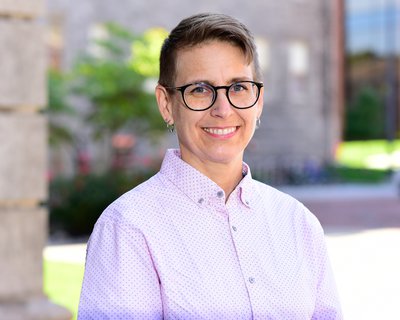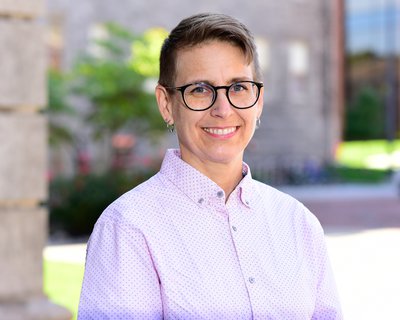Utah’s New Law Banning Books Ignites Censorship Debate
More than a dozen books are now banned from all public schools in Utah under a new state law. It’s the latest in what is a growing trend across the United States. In an April report, PEN America said that there were more than 4,000 instances of school book bans in the fall of 2023, more than twice the number from the previous spring.

Katherine Kidd is an English Studies professor at Syracuse University who organizes a banned book read-out event each year. She took time to answer some questions about the new law and how this and other book bans can have far-reaching effects.
Q: Is there anything in particular about this latest banning effort that stands out to you?
A: It’s hard not to think of it as part and parcel to the broader trend toward censorship and suppression of information, and the repression of marginalized identities, especially the aims of Project 2025, which seeks to create a conservative Christian social order by way of government restructuring.
The fact that almost all of Utah’s book bans this go-around are written by women and are about women’s experiences in the world, makes it pretty clear that there’s a correlation between the book bans and the ideology that drives Project 2025, as well as a correlation with the overturning of Roe v. Wade, etc. That it’s happening statewide in Utah is not entirely surprising, but I worry that Utah’s reputation with regard to its unique religious demographics can obscure the details of the actual law that passed and what it entails for the rest of the US.
The law passed there that has allowed for this banning is actually bananas. According to the law, a book can be banned if at least three of the state’s school boards determine the content is pornographic or otherwise offensive. That’s only 3 of over 40 statewide school districts in Utah. So, in Utah, if fewer than 10% of the districts deem a text inappropriate, the other 90%+ don’t have a choice in the matter. That kind of thing can happen anywhere, there are people actively working to make it happen everywhere, and those people have an agenda that goes well beyond books.
A silver lining is that for some authors and books, a banning or contestation can amplify the message. A book can become a best-seller and a cultural touchstone that people talk about for a long time because of a banning.
Katherine Kidd
Q: What kind of impact might it have on young readers and their teachers?
A: As an English professor, book banning is a personal affront to the values that I hold dear. However, I teach young adults, so I have more freedom (as of now) to share texts that aren’t likely to be taught in elementary, middle, and high schools, regardless of whether there’s a ban.
I feel sad for the kids who won’t have access to certain books. It will be more difficult for some kids to find books in which they see themselves, or books that answer real and valid questions about life. Since even textbooks are susceptible to being deemed pornographic, I also worry that young people – especially young girls, gender nonconforming people, and racial and ethnic minorities – will be deprived of crucial lessons about themselves, the working and care of their bodies, and their histories. It is antithetical to education.
A silver lining is that for some authors and books, a banning or contestation can amplify the message. A book can become a best-seller and a cultural touchstone that people talk about for a long time because of a banning. I think Gender Queer by Maia Kobabe is such a book. Without the backlash about one particular scene/set of panels, the book would be just one of many queer coming-of-age stories that came out that year. Now it’s everywhere, and loads of people have heard of it and read it. I teach it in one of my classes because of its cultural significance as well as its content. It is a success because it was deemed a problem. Still, that’s only the case with some books on some topics.
I read everything under the sun as a child and introduced myself to all sorts of texts that challenged my mind and offered alternative perspectives, and I wonder what my life and trajectory might have been if I had not had access to all those books.
P.S. Banning books by angel-person Judy Blume just makes you look like a cartoon villain.
Q: What can people do to push back on banning efforts that might be happening in their own community?
A: Keep yourself informed on local politics, especially those related to education. Read all the time and share what you’ve read with others. Support and use the public library. Hug a librarian (but ask permission first).
To request interviews or get more information:
Chris Munoz
Media Relations Specialist
Division of Communications
cjmunoz@syr.edu

